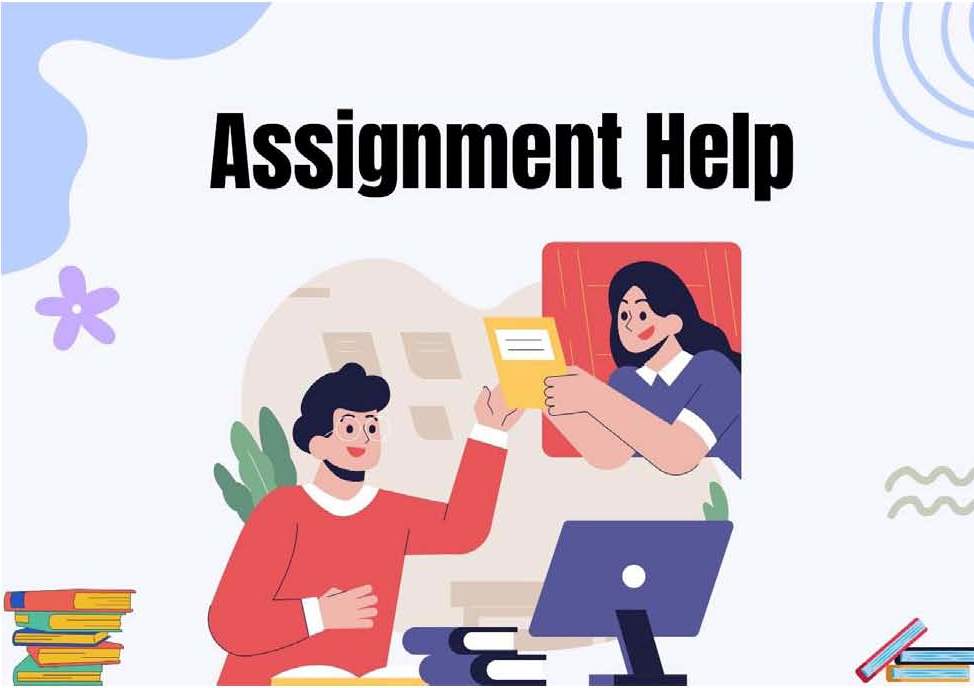- Fleuromonds Naturals Unveils New Line of Organic Scrub Scented Candles: A Sensory Revolution in Self-Care
- HuntVastuHomes is Now Recognized as the World's First Online Platform That Lists Vastu-compliant Apartments
- Medica Healthcare in Germany: Shaping the Future of Global Health at Düsseldorf 2025
- Voltas launches Flo Series Fans, Designed to Impress, Engineered to Save Energy
- The Braided Rug Company Expands Eco-Friendly Homeware Range in Aberdovey
- Grapes Worldwide crafts an engaging and real-time campaign, Poko’s Day Out for MamyPoko Pants
- Kopyst’s AI Tool Enhances Documentation with Automated Content Updates for Step-by-Step Guides
- SmartTOP Convertible Top Control by Mods4cars now available for Ferrari Portofino M
- Indo-Zimbabwe Film and Cultural Forum Unveils Ethereal African Elegance at 9th Global Fashion and Design Week Noida 2025
- TRC Redefines Its Market Presence by Revamping the Logo
- AAFT Celebrates Convocation of its 124th Batch at Marwah Studios
- Harmony Girl Unveils Trendy Collection of Casual Dresses and Online Jumpsuit Styles for Modern Women
- Free AI Tool for turning Your Images into Creative Prompts for AI Image Generation with Flux AI
- Vietjet Appoints Nguyen Thanh Son as New Managing Director to Lead Next Phase of Growth
- Bucks Biz Expands Flexible Office Space Offerings Across Milton Keynes
 Mail to a Friend Mail to a Friend |
|
     |
The Importance of Effective Communication in Student Success

Effective communication is a rich skill, which is essential in the pursuit of student success. Whether the setting is communicating with fellow students, communicating with the faculty, or conducting academic research, the skill of effective communication can be the deciding factor in a student's academic career. In this post, we’ll explore the significance of effective communication in the context of education, with a particular focus on how it impacts academic performance and overall success. Additionally, we’ll touch on practical strategies students can adopt to enhance their communication skills, ensuring they make the most of their educational experience. For students seeking additional support, assignment help can provide valuable guidance to improve both communication and academic writing skills.
What is Effective Communication?
Effective communication is the ability to convey information in a straightforward and comprehensible manner and the ability to receive messages clearly. Effective communication is present in both verbal and non-verbal communication, like in speaking, writing, body postures, and listening. In the learning context, it is not so much what is being said by the students but also how they say it, how they listen, and how they participate in academic discourse.
To the students, this skill competence means having the capacity to communicate effectively in discussion, express themselves in essays and assignments, and collaborate with peers and teachers to achieve shared goals. Why is it then that this is so important to academic success?
Why Effective Communication is Important to Students' Academic Success?
Improves Academic Performance
Effective communication is one of the principals of academic success. From posing relevant questions during class to putting ideas into written assignments and projects, students need to present their ideas logically and clearly. Whether doing group discussions or writing exercises, communication enables students to show understanding of the subject matter.
When students can communicate effectively, they are most likely going to receive positive comments from teachers, which equate to better grades. Second, effective communication skills help students follow instructions more accurately and hand in work of academic standards.
Fosters Collaborative Learning
In every school, the collaborative learning is promoted through group projects and team works. They require students to collaborate, exchange ideas, and coordinate responsibilities effectively. The skill of effective communication is important to the whole group contributing in proportion and also to the smooth running of the project.
Unless they effectively communicate, there may be conflict and misunderstandings and hence lead to wasted time, frustration, and low-quality output. In group setting, students should be able to articulate their mind, listen appropriately to others, and give feedback. This is not only effective for the project but also impacts individual learning.
Promotes Better Teacher-Student Relationships
Effective communication also proves useful in establishing effective teacher-student relationships. Students who are able to effectively communicate questions, problems, and ideas are best positioned to receive the required guidance. Professors like to have students who actively participate in class, ask engaging questions, and express interest in learning. For students who may struggle with communicating their ideas in assignments, assignment help services can offer the necessary support to improve clarity and expression in written work.
Alternatively, students who cannot communicate clearly may be unable to seek assistance when needed, hence impacting their grades. It is at this point that assignment help agencies can play a huge role in supporting students since they assist students with guidance when they cannot convey their academic ideas clearly on paper.
Reduces Stress and Anxiety
For most students, college is a daunting experience. The challenge to perform academically, balance different assignments, and meet deadlines makes them apprehensive. Communication, however, can reduce some of the apprehension. Students who are confident of their ability to communicate will be most likely to ask for clarification when they are not sure of something, which can prevent them from confusion and frustration.
Also, being able to articulate one's needs to fellow students or teachers can allow the student to feel loved and cut off isolation. From seeking an extension deadline on an assignment to seeking help with a particularly mind-bending idea, one must communicate his/her needs in order to perform well while facing academic stress.
Prepares Students for the Future Workforce
Effective communication skills are highly valued by employers in the current job market. During interviewing, networking functions, or in the workplace, being effective in communicating ideas and collaborating with others is very important. By learning these skills as students, they are laying a solid foundation for their professional lives.
Develops Critical Thinking Skills
Good communication promotes critical thinking. Not only do students need to communicate their own thoughts, but they also need to be able to criticize. Debating, debating various methods, and supporting arguments all force the students to think critically as well as convey their thoughts in a concrete form with an organized structure.
This development of critical thinking is significant not only for academic performance, but also for future professional and personal growth. Students become better able to handle real-world issues when they know how to analyze and communicate information.
Most Important Strategies for Improving Communication Skills
Since we already know how much effective communication matters to be successful in college, let us understand some tips which will enable the students to improve their communications skills.
1. Practice Active Listening
Active listening is an essential part of communication. Giving your full concentration to the person speaking and not merely waiting to speak is meant by active listening. Listening intently, learners can understand the context of what is being said or lectured about so they can reply wiser and wiser.
Active listening is also evidence of respect for individuals' opinions, which creates amicable relationships with students, teachers, and colleagues. Listening is just as crucial as speaking since it helps in processing information and giving responses that are accurate and clear.
2. Ask Someone to Review Your Writing Effectiveness
Writing is a component of academic communication, and having others see it can refine it. By peer review, tutoring, or assignment help services, constructive feedback can help pinpoint areas where writing skills need to be improved.
Students can enhance their reasoning, structuring, and writing clarity with more forceful arguments by redrafting and improving their own writing based on feedback. As the student continues to practice it regularly, its writing skill improves, which are of paramount importance for study successes as well as professional careers in the future.
3. Participate in Study Groups or Discussion Boards
Discussion forums and study groups give students an opportunity to learn group communication skills. Through discussion, students have an opportunity to voice their ideas well as they learn about their ability to listen in a bid to learn other people's views.
These communities also provide students with an interactive platform upon which they can ask questions and clear doubts, further enhancing their own course material understanding. Being able to explain technical things to others is a wonderful way of reinforcing one and also enhancing communication skills.
4. Take Public Speaking or Presentation Courses
The skill of public speaking can be developed through practice. Most universities offer a course or workshop to develop presentation skills. Through these, students can learn to speak confidently before an audience, a skill that can be used not only in academic but also in professional life.
Successful presentation skills are crucial in exams, presentations, and even interviews. Good communication skills are the key to keeping people interested, conveying intricate content, and creating a lasting impression.
5. Using Technology and Web Tools
The modern digital age provides an opportunity for learners to utilize a series of tools that can be utilized to make it easier for people to communicate. Internet forums, collaborative tools, and even video conferencing are great ways of communicating with other students and teachers, hence being connected all the time even beyond the classroom.
Besides, technology is capable of assisting students in developing their writing skills through the use of computer programs like Grammarly, Hemingway, and writing programs. The programs assist in making written messages concise, clear, and grammatically correct, reducing miscommunication opportunities.
6. Practice Empathy and Emotional Intelligence
Effective communication is not just about words. It's also about understanding the feeling and intent of the message. Cultivating empathy and emotional intelligence allows students to reach out and connect with people on a deeper and more meaningful level, building strong relationships with peers and teachers.
The capacity to recognize and respond to feelings appropriately can prevent conflict and misunderstanding, making learning more positive and productive.
7. Set Specific Aims for Communication Improvement
Lastly, students must set quantifiable, specific objectives for communications skills. Essay writing, class participation with ease, or acquiring listening skills is what it can be. Setting specific objectives helps ensure that students are on the right track and motivated. Progress can be tracked over a duration of time, and where need be, they can alter their approach to constantly improve their communication abilities.
Conclusion
Effective communication is obviously a critical element for academic success. By the skill, students can excel academically, build healthy relationships with instructors and peers, and prepare for possible professional careers. By group discussion, improvement in writing, or active listening, the aforementioned strategies can help students enhance communication skills and achieve academic success.
For students in need of more assistance with enhancing their assignments and acquiring sound communication skills in written assignments, Assignment in Need (assignnmentinneed.com) is there to provide help and resources for the development of quality academic entries. It will take some time to develop strong communication skills, but the advantages will be gained through your academic work and into your future.











